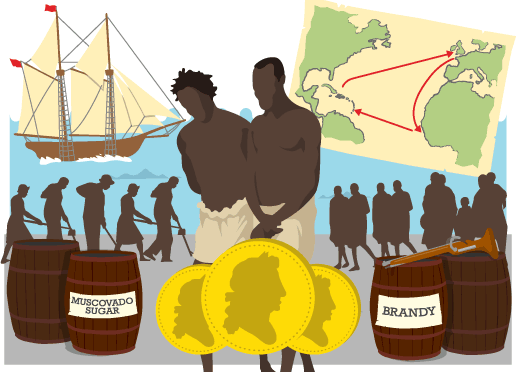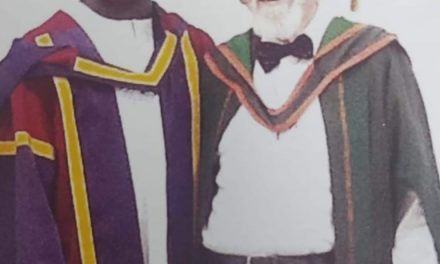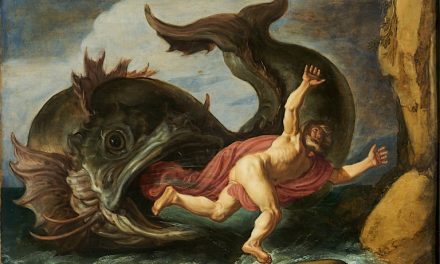Slavery, a cruel and inhumane business existed in every country, in every culture, and every race. Slavery as a shame to be borne by all races and all of mankind griefs God. The truth is that slavery has nothing to do with ethnics but everything to do with the evil within humanity. Using the words of the 104th Archbishop of Canterbury, Dr Rowan Williams, slavery as an offence to human dignity and freedom “… is an offence against the created order of equality, an offence against the dignity of humans as called to share in some measure in God’s own creative responsibility, an offence against the interdependence that makes it impossible for any one truly to flourish at the expense of any other person.” Beyond the thinking of black slaves taken from Africa in the 17th and 18th century from the west coast Africa, and sold to work in plantations in the west, it is important to note that ‘there was a North African slave market trading in white European slaves. The European slaves were taken by Barbary pirates from North Africa, in raids on coastal towns from Italy, Spain, Portugal, France, England, Ireland and the Netherlands. Men women and children were captured on such a scale that vast numbers of coastal towns were abandoned.’
One of Britain’s leading slavery historians, Professor David Richardson of the University of Hull’s Wilberforce Institute for the Study of Slavery and Emancipation rightly said that, “There has been a general failure by most historians and others to fully appreciate the huge significance of August 1518 in the story of the transatlantic slave trade.” This month of August marks the 500th anniversary of one of history’s most tragic and significant events – the birth of the Africa to America transatlantic slave trade. Slavery was well alive and well long before the early European voyages of discovery from 1400 onward that facilitate the slave trade. The slave trades’ first horrific voyages happened ‘exactly five centuries ago – on 18 August 1518 (28 August 1518 – according to Gregorian calendar).
David Keys, an archaeology Correspondent with Independent News in his write up ‘Details of horrific first voyage in transatlantic slave trade revealed’ offers an insight on the role and cooperation between by the King of Spain, Charles I and the Portuguese crown in the early development of the transatlantic slave trade. It was the King of Spain who ‘issued a charter authorising the transportation of slaves direct from Africa to the Americas. Up until that point (since at least 1510), African slaves had usually been transported to Spain or Portugal and had then been transshipped to the Caribbean.’ According to Keys, the slave trade ‘was a catastrophe for Africa. The Arab slave trade had already had a terrible impact on the continent – but European demand for slave labour in their embryonic New World empires worsened the situation substantially. Although many of the slaves for the Arab and transatlantic markets were captured and/or enslaved and sold by African rulers, the European slave traders massively expanded demand – and consequently, in the end, triggered a whole series of terrible intra-African tribal wars.’
Raid expansions and wars were encouraged ‘around the mid-16th century, in order to satisfy European/New World demand, African slave raiders needed more captives to sell as slaves to the Europeans.’ African catastrophe based on ‘the issuing of the royal charter 500 years ago this month not only led to the kidnapping of millions of people and a lifetime of subjugation and pain for them, but also led to the political and military destabilisation of large swathes of an entire continent.’ In order not to lack manpower and the desperation by Spain to ensure that its royal goldmine and agricultural estates did not suffer, the Spanish king ‘authorise direct slave shipments from Africa to the Americas.’ It is on record that, ‘over the subsequent 350 years, at least 10.7 million black Africans were transported between the two continents. A further 1.8 million died en route.’
It is important to tell the full story beyond the role of the Spanish king and others who introduced the cargo ship into the slave trade equation and its aftermath. The truth is that, it was not the Spanish king and others who captured or sold our own African siblings to themselves. Generally with life you will be betrayed by close relatives, colleagues or friends, and that was the case of Africans selling and betraying one another as victims of slave trade. After 500 years, slave trade is still alive and flourishing especially through recruitment of cheap labour from developing countries even without a sense of guilt or repentance.
The message is that this month’s quincentenary as a ‘tragic event that caused untold suffering and still today leaves a legacy of poverty, racism, inequality and elite wealth across four continents.’ This anniversary reminds us the role played by the evangelicals, the Religious Society of Quakers for their beliefs which stated that everyone was “equal in the sight of God” and capable of receiving the “light of God’s spirit and wisdom”, including Africans. John Wesley’s Thought upon Slavery informed by the Quakers questioned the morality of slavery and those who engage in it and this influenced many British Christian abolitionists. Among them was William Wilberforce, ‘the evangelical Anglican MP who worked to end the slave trade in Parliament, believed that he had been called by God to end the ‘immoral’ slave trade.’
Slave trade at 500, Mark Wakelin, a former President, Methodist Church in Britain provides us a thoughtful reflection on how to overcome the slave trade legacy of poverty, racism, inequality and Elite Wealth across four continents. According to Wakelin, ‘this is my thought as a white European. My many privileges of education and possession are built on this injustice for which no reparation has been made. All our policies of development aid, immigration, asylum and peace making must take this into account. Our debts are yet to be paid.’ Slave trade at 500 calls for debts to be paid to overcome poverty, racism, inequality and elite wealth across four continents. In conclusion, Dr Williams rightly calls us with God’s help to challenge ‘the inhumanity of those who enslave today through debt slavery, sex trafficking, forced labour, and child abduction and exploitation’ He said “…We shall indeed have the courage to face the legacies of slavery – the literal degrading of millions who, then and now, are the victims of the greed of others, and the spiritual slavery of those who oppress and abuse, and so wreck their own humanity as well as that of others.”











Recent Comments